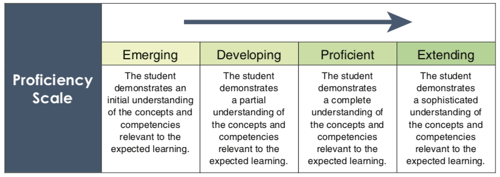Updates around the Reporting Pilot for 2019-2020 are available at https://www.prn.bc.ca/?page_id=3862
In June of 2018 the Ministry of Education requested Districts to participate in a Reporting Pilot for the 2018-2019 school year. SD60 was accepted into the pilot group in late June. Interested schools were asked to identify themselves to the District. Conversations with District staff, Principals, and Teachers began in late June through September to select pilot schools where significant teacher interest was indicated.
The five schools participating in the pilot are
- Alwin Holland
- Duncan Cran
- Taylor
- Upper Halfway
- Wonowon
Our Goal
Along with providing feedback to the Ministry of Education we are working with schools and teachers to consider how we can change reporting in School District 60 so that it is more timely, strength based, and better for supporting a student’s learning. Feedback will be provided to the Board of Education for consideration for a future reporting policy.
What does the pilot entail?
The Ministry of Education is looking for feedback from schools and districts to inform a Grade K-9, and possibly a Grade 10-12, Reporting Order. A Reporting Order sets forth requirements on districts, schools, and teachers as to what is reported and how often reporting is to happen.
Currently we have a temporary reporting order in K-9 that allows school districts to choose one of two options. Option A requires Board policy that allows for more timely, rich communication of a student’s learning. Option B more closely matches the traditional report card practices. School District 60 currently uses Option B. For more on the Reporting Order details please see https://www2.gov.bc.ca/gov/content/education-training/administration/legislation-policy/public-schools/student-reporting .
The pilot group is using requirements that are a modification of Option A. The minimum requirements are as follows:
- Summary of Progress at end of year or student leaving school (Using the provincial Student Information System MyEducation BC )
- 3 Core Competency reflections at end of year with artifact from student’s work
- Multiple points of progress during the year with the following requirements
- No surprises for families
- Ongoing conversations with Strength based descriptive feedback
- Two times where well-being / engagement / behaviour is reported
- Two written/electronic reports (can be documentation of Phone calls / Parent-Teacher / Student-Led conference)
- Developing 3 core competencies during year
- All areas of learning have descriptive feedback at least once during year
- A proficiency scale is given for all areas of learning at least once during year (ADST and Careers will remain as descriptive feedback)
The traditional report cards in the fall and spring will not be provided at the pilot schools. The Summary of Progress at the end of the school year
Proficiency Scale
The three different scales (K Scale, Primary Scale, Intermediate Letter Grades) currently in use in K-9 for pilot schools will be replaced with one proficiency scale shown below.
- Emerging (EMG) – Developing (DEV) – Proficient (PRF) – Extending (EXT)
The aim is for students to reach proficiency. A letter grade conversion table is available for parents with students in grades 4-9 who request it.
This four-point proficiency scale aligns with the proficiency scale used in the new Graduation Assessments.
Presentation
The embedded presentation below has been given at some of the Parent nights and PAC sessions
Survey – the survey for parents in participating schools is available until July 2, 2019 at http://bit.ly/sd60pilot/
Questions or Feedback
If you have any questions or feedback please feel free to contact your school Principal if you are a parent or student in a school participating in the reporting pilot. You may also contact the Director of Instruction,
- Jarrod Bell
- 250-262-6011
- jbell@prn.bc.ca


